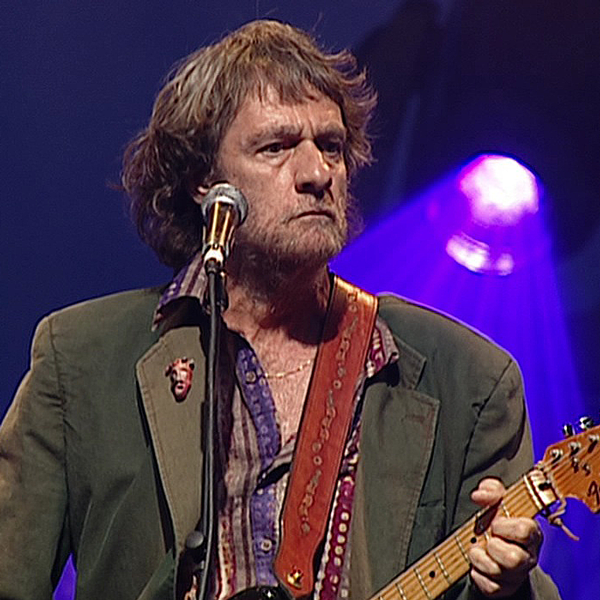The name given, in specific sociological and socio-historical situations, to the variety of French spoken in Québec.
The word joual comes from a rural or working-class pronunciation of cheval (horse). It originally functioned as an adverb, used exclusively in the expression parler joual (much like in parler bête and parler franc). Prior to 1960, it referred to speaking in an inarticulate, incorrect or unintelligible manner. In the past, “to speak joual” was therefore to speak French like the sociological group that pronounced the word “cheval” as [ʓwal] (namely farmers and the common people, both defined rather vaguely).
Between 1960 and 1975, joual rather suddenly came to refer to Québécois French, as a specific dialect (similar to Yiddish, Chiac or Creole). Use of the term joual was usually pejorative and implied that the variety of French spoken in Québec was characterized by a group of traits (mainly phonetic and lexical) that were deemed incorrect or bad. These traits themselves were typical of the speech of the working class and were often considered signs of acculturation.
Today, the word joual is rarely applied to the variety of French spoken in Québec. More neutral terms, such as Québécois, Québécois French, Québec French, and vernacular French from Québec, are prefered.
Derogatory Term
Although its etymology links it to rural language, the word joual, as a derogatory term for French spoken in Québec, was closely associated with urban life, particularly in Montréal, between 1960 and 1975. At that time, contact with the English-speaking community in certain parts of Montréal, as well as the decision-making power that anglophones had in factories and businesses, significantly anglicized the language of the Québécois. Peppered with anglicisms that had been adapted into French (including some English verbs given French conjugations), this colourful language was thought to belong to the people — namely blue-collar workers — deprived of education and of sufficient contact with broader francophone culture.
Today, we know that the number of stable anglicisms in joual is actually quite limited, and that several are used only on an ad-hoc basis, by working-class speakers, for reasons that are sociologically and historically temporary. Factory supervisors and business managers were unilingual anglophones, causing francophones to use English technical terms frequently at work (particularly in restaurants, garages, factories and logging camps). The Québécois language in its deeper, familiar, non-technical usages is, in fact, fundamentally un-anglicized, which greatly facilitated widespread campaigns between 1970 and 1980 to gallicize terminology in the workplace, in business and in leisure activities (including sports, particularly hockey and baseball). These campaigns then led, rather quickly, to the current disuse of joual as a derogatory term. Once the French spoken in Québec was no longer perceived as being so anglicized, it gradually stopped being called joual.
An Enduring Variety of French
The fact that the variety of French spoken in Québec is no longer known as joual, however, does not mean that joual has disappeared. Rather than reflecting the disappearance of the variety itself, the partial disappearance of the derogatory word used to refer to it signals a better understanding by the masses and the elite alike of the fundamental linguistic characteristics of joual. Joual continues to exist throughout Québec, but under different names. It is a variety of French characterized by very stable phonetic peculiarities and a lexicon incorporating various archaisms, French dialectalisms, anglicisms, Aboriginal words and neologisms. Although joual is slowly losing some of its idiomatic characteristics as it gradually aligns itself with standard French, it remains one of the most distinct dialects in the French-speaking world. It should be considered an isolated variety of French, in much the same way that Australian and New Zealand English are separate from standard English.
The Literary Language of an Era
The importance of joual in Québec was as much political and cultural as it was sociological and sociolinguistic. While joual was considered a travesty by some and a triumph by others, the discovery of the widespread existence of a working-class Québécois language was one of the major consequences of the growing awareness of the collective Québécois identity during the Quiet Revolution. The pervasiveness of working-class language was decried by André Laurendeau (editor of Le Devoir) in a 1959 editorial and by Jean-Paul Desbiens (author of the essay Les insolences du Frère Untel) in 1960. They branded the use and spread of joual as among the worst evils in Québec society. Characterized as lazy — signalling an apathy towards excellence — joual symbolized, according to these writers, an inability to communicate properly in a society whose service sector was rapidly expanding. The authors of the political and cultural magazine Partis Pris (1963–68) vehemently challenged this view. Thus, opinions clashed on the subject of the working-class Québécois language and, between 1960 and 1975, the “joual dispute” was prominently featured in debates on language, letters and public instruction.
Furthermore, initially motivated by the interest in social realism that was making its way into the dramatic arts, playwrights naturally began writing and staging plays that incorporated joual. In this lively atmosphere, Michel Tremblay became, almost in spite of himself, the leader of “littérature joualisante.” The play Les belles-sœurs (1968), the teleplay En pièces détachées (1970), the novel C’t’a ton tour, Laura Cadieux (1973) and the film Il était une fois dans l’est (1974), all by Tremblay (some in collaboration with director André Brassard), are historical examples of literary works written in joual, primarily (if not exclusively) to create more faithful representations of the societies depicted.
At first, this artistic phenomenon sparked an especially strong outcry among the elite francophone minorities of Québec. Taking stock of the strength — both subversive and liberating — of the language issue, more and more Québec writers began using joual in their novels (Jacques Renaud), plays (Jean Barbeau), collections of poetry (Gaston Miron, Lucien Francoeur) and even essays (Victor-Lévy Beaulieu). It was increasingly heard on the radio, on television (Denise Filiatrault, Dominique Michel), in film (Gilles Carle, Pierre Falardeau), in monologues (Yvon Deschamps), in comedy (Les Cyniques, Les Jérolas) and in music (Louise Forestier, Diane Dufresne, Robert Charlebois, Plume Latraverse). Even politicians spoke joual from time to time (Réal Caouette, Daniel Johnson, Sr, René Lévesque).
For the first time ever, a large proportion of texts and speeches were written or spoken in the people’s language, rather than in a largely artificial “France French.” While demonstrating the social integrity it initially sought to represent, joual came to symbolize and spotlight the degradation that the Québécois people experienced. This degradation had two distinct causes: 1) anglophone dominance in the political and economic sectors, and 2) the linguistic standard of the francophone elite who were educated in an outdated and restricted public education system. At one point, everything revolved around the liberating cry of joual. Profanities made a mockery of the Catholic Church. Anglicisms became verbal games and playful distortions serving to disrespect the colonizer’s language. The colourful language and the joyfully dialectal pronunciation of certain vowels and consonants became nothing short of ritualized symbols — collective signs of complicity within a non-elite and rebellious Québécois identity.
Joual in Cultural Expression Today
Joual no longer has such a radical or contentious place within the culture of Québec, standing out much less than it once did. With its usage now firmly established in the arts, joual has largely become (or is once again) optional. Moreover, it is no longer strictly associated with particular individuals (Michel Tremblay, for instance, now writes novels in “literary French,” with characters who express themselves in joual from time to time, in dialogue). In contemporary culture, the film Mommy by Xavier Dolan (2014) is an excellent example of an internationally released cinematic work in which the heavy use of joual feels completely natural, drawing no criticism. People from other French-speaking countries watched the film with French subtitles. The use of joual, in public discourse and the arts, has been adapted to contemporary life and no longer faces the restrictions and derogatory designations of an elite social class. Joual endures in Québec, both within and outside of literature; it has simply found its place, in society as much as in the arts. And, since the “joual dispute” has ended, joual is talked about less frequently (hence the word itself having become relatively obsolete).

 Share on Facebook
Share on Facebook Share on X
Share on X Share by Email
Share by Email Share on Google Classroom
Share on Google Classroom






